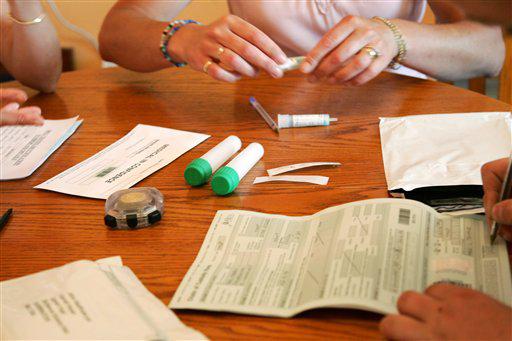
By Kristen Santer
For the past couple of months, I have been applying for internships and jobs in Connecticut and New York, and I was interested to see that a sizable number of employers asked if I was willing to participate in a drug test, especially since both states have only recently legalized medical marijuana. It brought to my attention how medicinal and recreational marijuana legalization is going to affect the workplace in the next few years, especially with new states like Oregon and Alaska joining in the legalization of recreational marijuana.
According to Yahoo! Finance, positive drug tests rose to 3.7 percent for the first time in a decade, and in Colorado and Washington, positive drug tests for marijuana increased to 20 and 23 percent respectively. However, there is little evidence that companies have begun to relax their drug use policies, with most employers enforcing a zero tolerance policy. With medicinal and recreational marijuana use on the rise, this could ignite a new form of discrimination in the workplace.
Under the amendment that legalized marijuana in Colorado, employers are not required to “accommodate the medical use of marijuana in any work place.” However, Brandon Coats, a previous employee of Dish Network and quadriplegic, was fired after failing a drug test even though he had a medicinal marijuana prescription; Coats states that marijuana controls leg spasms and that he was always sober while at work. He has yet to receive an answer from the Colorado Supreme Court after his appeal.
When marijuana was legalized, loss of jobs was an unintended and unfortunate consequence. While there is not enough information to fully discuss the financial repercussions and benefits of marijuana legalization, perhaps citizens and legislators did not realize the economical drawbacks, while they were focusing on the substantial monetary increase in state revenues from taxes.
As of right now, there seems to be no apparent backlash from the media or the community about the danger that marijuana legalization poses to jobs. However, this is more likely the fault of companies strict drug policies than marijuana legalization itself.
One of the only new measures regarding marijuana drug testing is now occurring in the District of Columbia, where employers are banned from requiring drug tests of potential employees. However, employers still retain the right to test employees for drugs after including them on payroll.
While companies take their time adjusting policies to fit the changing times and laws, potential employees may be overlooked and rejected based on their legal drug use. Unfortunately, there are many contingencies with drug use policies.
Currently, the standard drug test will indicate that employees are positive for marijuana even if they are sober during work hours, and use it solely as a weekend activity. The ingredient THC that is found in marijuana can usually be detected in the urine from one week to one month after marijuana consumption, according to Drug Court Institute. Employees are therefore allowed to drink casually, but cannot consume marijuana whatsoever.
In addition, state marijuana laws directly clash with the federal law, which clearly states that the use of marijuana is illegal. Any employer that receives federal funding or is subject to other federal regulations must consider marijuana a prohibited substance, regardless of its legalization status in the state.
Although these issues continue to plague and prohibit reform within the workplace, companies need to review their policies and back away from their strong commitment to zero tolerance. Employers will only continue to receive backlash and lawsuits from the community, and block their companies from progress.
While federally supported companies should demand a drug-free workforce, it is confusing to figure out how to respond to the increase in the recreational use of marijuana. It is clear that employers should not discriminate against users of medicinal marijuana, assuming that they are sober while at work. Although their employment is not protected under the Colorado state constitution, employers should not deny employees their various healthcare options as long as they remain drug free during working hours.
However, employers are not unreasonable by demanding a drug free zone. In their eyes, it has been the only way to ensure an acceptable and respectable workplace attitude and ethic for the past few decades, making them feel at ease that none of their employees are drug users, and therefore sober while working (there are obviously employees who slip through the cracks, however).
Nevertheless, many companies should implement a more lax policy regarding marijuana use, at least until new drug tests are created that can accurately record marijuana consumption. Employees are expected to remain sober and alert during work hours, but they cannot be blamed for marijuana use recreationally any more than alcohol consumption.
Companies can remain rigid in their commitment to zero tolerance when it comes to drug testing policies, but they will continue to suffer from it. The growing shift in the perception of marijuana demands reform. In addition, several studies have arisen which question the overall effectiveness of drug tests. Lewis Maltby’s study, published as early as 1999 by the American Civil Liberties Union, stated that it is not an accurate and inexpensive way to measure employee efficiency.
As companies hopefully begin to soften their drug testing stringency with the rise of casual marijuana use, we may see the slow decline and eventual end of drug testing altogether.







































































































































































































FreshPrinceOfDarkness • Mar 28, 2015 at 9:50 pm
Fantastic opinion piece. So many issues I hadn’t considered with regard to marijuana legalization. Viva la Revolucion!